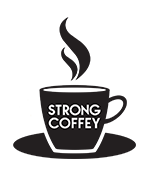Why addiction to processed foods and sweets is a uniquely modern affliction.
Dear Coffey: I’m completely hooked on Monkey Brains, 1 and for me that means rich, decadent food. My mother, who ate like I do, needed double bypass heart surgery at age 50, just three years older than I am now. Why am I doing this to myself? Why am I so attached to Monkey Brains that I am willing to die to eat them??!!
Thanks for the work you’re doing!
Babs from Boston
Hey there, Babs –
We’re willing to go to seemingly any lengths to eat Monkey Brains because, once we cross a certain threshold, less palatable food – anything less explosively delicious – leaves us…wanting.
Once upon a time we’d eat whatever food was available when we were genuinely hungry. The act of eating to sate hunger inspired our brains to release a flood of dopamine, the neurochemical of pleasure. 2 That neurochemical response helped ensure we’d eat again the next time we were hungry. The drive to experience pleasure gave us a better chance of surviving at least as long as food was available.
Before modernity most humans had no wild flavor or texture expectations, so eating simple foods because we were simply hungry was deeply satisfying. We’d get a hit of dopamine eating a cucumber or a fistful of berries. Basic, undoctored foods scratched the itch. But food was seasonal and growth was inconsistent and being able to get enough food depended on everything from rainfall to effing locusts. So, to help us ride out the dry spells, our brains kept us as plump as possible by giving us an extra jolt of dopamine every time we ate something that was hyperpalatable – high in fat, high in sugar, and/or high in salt. Slamming these weirdly delicious treats on the rare occasions they were available helped us store enough fat to survive long winter, plague, and drought.
“So why the heck weren’t Ma and Pa addicted to hyperpalatable foods?” you might ask.
Well, we don’t become smokers if we only smoke twice a year, and we don’t become drunks if we only ever drink a little, or drink only rarely. Since hyperpalatable (high fat/sugar/salt) foods were only rarely available, we looked forward to them, and gobbled them up, but didn’t have a chance to get hooked on them.

The term ‘orgy in my mouth’ springs to mind.
Today, practically every food we buy is a hyperpalatable food. If it’s in a bag, in a box, or is prepared for us by a business invested in us coming back for more, odds are it has more fat, salt and/or sugar than nature ever intended. Because we’re being wildly overexposed to this deliciousness – deliciousness that had the very specific purpose of inspiring us to pack on and retain weight to protect us from starvation when there was zero food available – two things have happened:
1- We’ve created a neurochemical situation wherein whole, healthy foods no longer trigger the dopamine flood, and no longer bring us the pleasure they once did, and as such
2- We’ve become hooked on 3 the foods that do.
As an addiction it’s a little different than, say, smoking. When a smoker needs a cigarette, it’s because they’re withdrawing from a chemical in the cigarettes – nicotine. With food, it’s not all about what’s in the food that’s enslaving us; we’re also being driven by the brain’s desire to get a dopamine hit. Now that hyperpalatable foods are all that some of us ever eat, we’ve built a tolerance to real food. 4 Real foods – whole foods, as-nature-intended foods – no longer cut the honey mustard.

Dr. Avena does research on sugar addiction at Princeton
Scientists like Dr. Nicole Avena at Princeton University have gotten rats hooked on sugar to study how they behave differently from rats who’re satisfied eating healthy rat chow. Her studies have shown that, when rats that’re addicted to sugar are cut off from their supply and then re-exposed, they’re willing to go to strange and sometimes dangerous lengths to get more. Imagine a little tweaker rat jumping through a flaming hoop earring to get at a Twinkie. We’re not rats, but our brains are very similar. Once we’re hooked on something – be it cigarettes or hyperpalatable foods or sugar – we find ourselves going to extremes, and sometimes even putting ourselves in real physical danger, to get a fix.
Addiction and compulsion overpower logic and sensibility. For as long as we’re trapped in the addictive cycle, we will continue to eat foods that harm us, or in ways that harm us, despite all we know about nutrition, and everything we want for ourselves and our bodies, and all the lessons we can learn from folks who came before us.
Remember: addiction, compulsion, and dependency are insidious and sneaky and patient and, many would argue, permanent. It’s up to people like us to hook into the best information we can find, and to secure ourselves appropriate support. You’re obviously already doing a great job of that, which is reason to celebrate, and evidence that you’re already getting better at the whole caring thang.
You can do this, Babs! There’s a clear path to getting happily grounded in healthier habits – especially around food and eating – and you’re already on it. Keep taking one step at a time, keep talking, keep reaching out, and please keep me in the loop.
All good things,
Coffey
Notes:
- Foods, substances, or behaviors that we don’t relate to in a healthy way. ↩
- I’m not a scientist, nor do I claim to be. But there are scientists, like Dr. Nicole Avena, doing studies around food-based addiction. You can visit her, and read more on her research here http://www.drnicoleavena.com/ ↩
- Dependent on. Driven madly toward. Obsessed with. ↩
- Tolerance is one of the markers of addiction. ↩


Wow! This showed up in my newsfeed right after I posted that I was learning to braise vegetables, because I want to eat things that make me feel good an hour after I eat them and not just while they are in my mouth. Coincidence? I think not. Good message, Coffey.
Thanks, Loraine! Lucky body you have to be carrying around a brain that works to take such good care of it.
What if you do not know how to begin to eat healthy?? This may sound like a very stupid question, so please excuse my ignorance. I just do not know how or where to start.
Aimee, this is the greatest question ever. This is the question I wish everyone would ask. I’m excited that you had the courage to ask it.
No matter what we eat, we can almost always make better choices. What the specifics of those choices look like depend on how we live, what our resources are, and what type of eater we are. There is no one way to starting eating healthier, and anything that claims there is is selling fantasies, not the truth.
I go into how we figure out our own best path to having a healthier relationship to food in the course I created. I hope to see your name on my roster next time it runs.